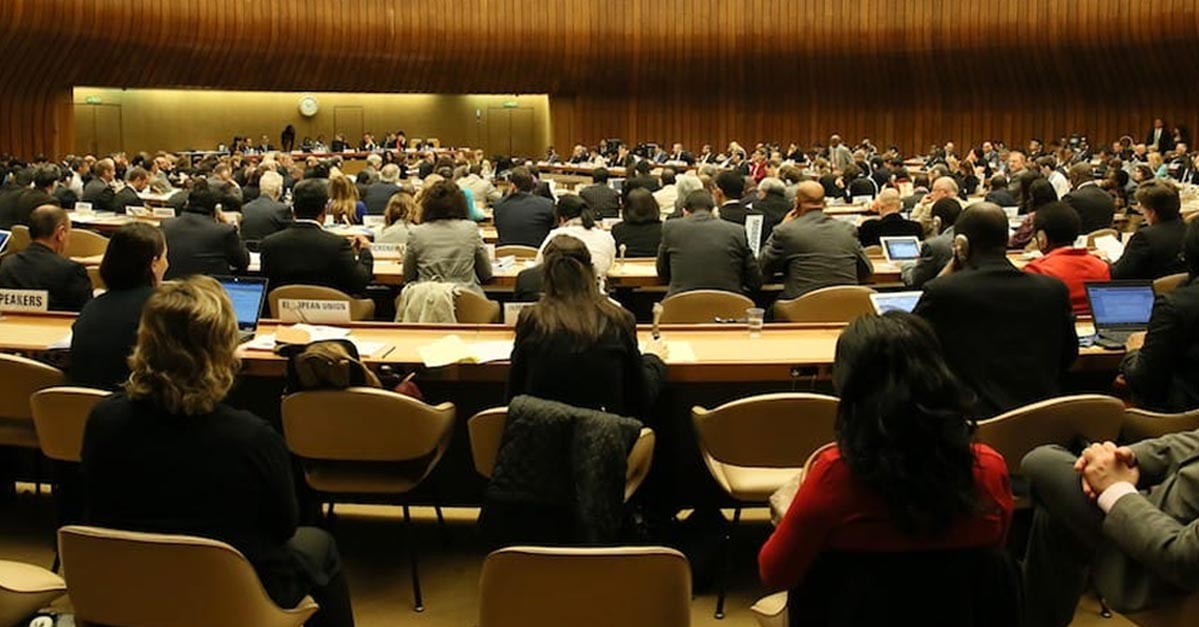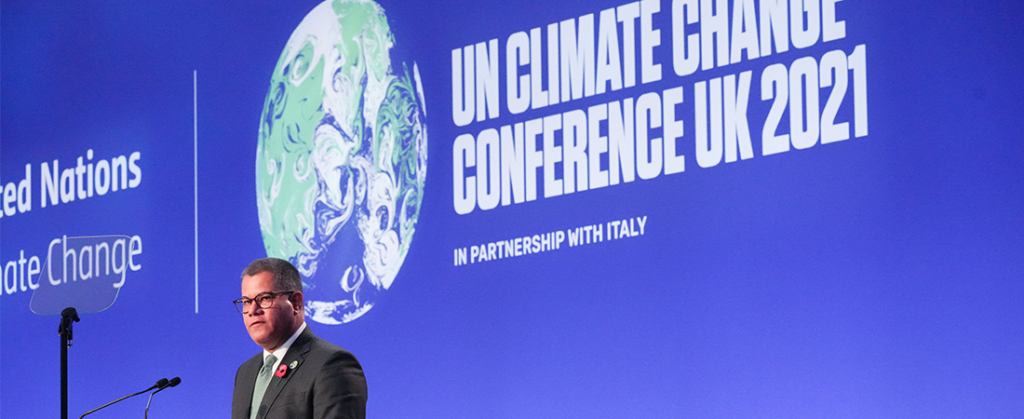Analysis from Portland’s Global Health experts
The 78th World Health Assembly (WHA) unfolded amid profound uncertainty and transformation in global health. With geopolitical shifts, financial pressures, and evolving disease threats converging, this Assembly tested the resilience of global cooperation and set a course for a more integrated, accountable health system. Held under the timely theme “One World for Health,” it marked a pivotal moment in the future of global health governance and financing.
The WHA is the World Health Organization’s (WHO) decision-making body, where representatives from all Member States convene annually to shape global health policy. This year’s Assembly took place amid heightened uncertainty following the United States (U.S.) retreat from the organisation, alongside significant cuts to U.S. government funding and broader international aid. These developments threaten WHO’s ability to deliver and risk fragmenting global health efforts – particularly in low- and middle-income countries dependent on WHO and USAID support.
No stranger to scrutiny, WHO faced especially intense pressure at this Assembly. In response, Director-General Dr. Tedros Adhanom Ghebreyesus launched a “radical reset,” including plans to halve the senior leadership team to streamline operations and adjust to tighter budgets.
This analysis reviews the key outcomes of the 78th Assembly – focusing on pandemic preparedness, climate change, and financing – and explores their implications for the future of global health cooperation.
Key outcomes
1. Historic Pandemic Agreement Adopted, with U.S. Declining to Join
A long-awaited milestone was reached with the adoption of the final draft of the WHO Pandemic Agreement, designed to create a more equitable and coordinated global response to future health crises. Amid ongoing uncertainty, this represents a major win for the global health community. However, the United States declined to participate, with Health Secretary Robert F. Kennedy Jr. criticising WHO’s effectiveness and advocating for direct U.S. collaboration outside the WHO framework. In contrast, China and India publicly endorsed the agreement, underscoring WHO’s vital role in advancing global health.
While widely hailed as a landmark achievement, the path ahead remains uncertain. Pandemic fatigue, fractured multilateralism, and financial instability mean that the 2025 WHA will be a critical test of the world’s commitment to pandemic preparedness.
2. Adoption of the Global Action Plan (GAP) to Address Climate Change
In further positive news, Member States approved the Global Action Plan on climate change and health, marking a critical step in linking global climate and health agendas more clearly. The GAP builds on last year’s “Resolution on Climate Change and Health,” reflecting growing recognition that climate change is not only an environmental issue but a major and immediate health threat worldwide. This commitment is distinct because it formally integrates health considerations into countries’ climate action plans under the Paris Agreement, encouraging governments to prioritise mitigation strategies that also maximise health benefits – such as reducing air pollution and promoting sustainable energy.
While broadly welcomed, climate activists criticised the plan’s failure to call explicitly for phasing out fossil fuel subsidies – an issue seen as essential for meaningful progress. The GAP underscores WHO’s increasing focus on climate as a key health determinant and highlights pressure from vulnerable countries facing dual burdens of climate crises and fragile health systems.
3. Member States Approve 20% Increase in Contributions Amid Budget Cuts
In a significant show of commitment, Member States agreed to raise their assessed contributions by 20% for the 2026–27 budget cycle, aiming to diversify funding sources and enhance WHO’s financial stability. This historic increase sends a clear signal of strong support for the organisation, despite the broader context of tightening global finances and competing fiscal pressures. However, even with this increase, the approved budget totals $4.2 billion – a 22% reduction from the original $5.3 billion proposal – reflecting the harsh financial realities that the WHO and its member countries face. Nevertheless, this budget still aligns with WHO’s Fourteenth General Programme of Work (2025–2028) and underscores the collective determination of Member States to sustain and advance global health efforts, even in an era marked by economic uncertainty and geopolitical shifts.
4. Over $170 Million Pledged to Support WHO’s Strategy
Donors pledged more than $170 million in funding, alongside an additional $90 million annually through assessed contributions, supporting WHO’s 2025–28 strategic plan. China made a standout commitment of $500 million over five years. Other significant pledges included Switzerland ($40M), the Novo Nordisk Foundation ($57M), Sweden ($13.5M), Fondation Botnar ($9.6M), Qatar ($6M), the Children’s Investment Fund Foundation ($13M), and Laerdal Global Health ($12.5M). These pledges again demonstrate continued support for global investment in WHO’s mission amid challenging financial times.
5. New Guidelines Established to Improve Access to Controlled Medicines
The WHO introduced a new roadmap to improve access to controlled medicines – like opioids and amphetamines – while reflecting the WHO’s commitment to equitable access and patient safety. The guidelines aim to help countries develop balanced policies that support medical use for conditions like pain, mental illness, and substance use disorders, while minimising the risk of misuse.
6. Adoption of Rare Disease Resolution
Members voted to adopt a resolution to establish a global framework to support the diagnosis and management of rare diseases and promote research in the field. Sponsored by more than 20 countries, the resolution comes as the culmination of a decade of advocacy by the rare disease community as well as a recognition of the challenges faced by patients with rare diseases and the need for coordinated global action.
7. Broader discussions and emerging trends
Beyond these tangible outcomes, a broader conversation emerged – one that many believe is long overdue: the urgent need to rethink and streamline global health systems to boost efficiency and impact amid tightening budgets and growing demands.
Against this backdrop, WHO is positioned to take on enhanced leadership in global coordination, supported by increased funding and responsibility. Meanwhile, organisations like Gavi and the Global Fund face growing pressure to better align with each other and with country-led priorities, signalling a shift toward more integrated, locally driven approaches.
Philanthropic organisations such as the Gates Foundation are stepping up support while advocating for stronger governance, greater cooperation among major players, and clearer goals. Whereas past discussions focused on “who will pay” as the world moved away from donor reliance – especially since philanthropy accounts for less than 0.2% of global health funding – now the emphasis is on improving system management and accountability to shape the future.
As more funding flows through large institutions and governments, NGOs are being called to collaborate more closely, deliver integrated services, and clearly demonstrate their value. There’s also increasing interest in private sector innovation and investment – but with clear rules to ensure equitable access, especially in crises.
This realignment reflects growing recognition that the old charity model – fragmented, donor-driven, and reactive – no longer suffices. Global health must be framed as a smart, strategic investment: efficient, equitable, and collaborative.
Despite ongoing uncertainties, the 78th WHA showed WHO member states coming together rather than fragmenting. With new funding mechanisms and voluntary contributions adopted, WHO retains considerable influence.
That said, while these pledges and budget increases are promising, the real test lies in how swiftly and flexibly resources reach frontline communities – especially the most vulnerable, who bear the greatest burden and need our collective protection most.
Looking ahead
This year’s WHA laid important foundations, but the real test lies ahead: whether global health leaders can turn commitments into meaningful action amid ongoing political tensions, financial constraints, and emerging health threats. The future of global health cooperation depends on resilience, innovation, and inclusive partnerships that support the world’s most vulnerable. The global health community has always shown remarkable adaptability – now is the time to rise again and embrace a new era of global health.





